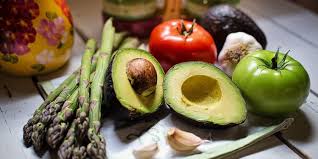Along with regular exercise and avoiding smoking, following a nutritious diet is one of the best ways to protect your heart. What you eat can affect your blood pressure, cholesterol, inflammation, and other factors that influence your risk of heart disease.
Diets that are rich in fiber, antioxidants, and healthy fats help support cardiovascular wellness, while eating too much added sugar and processed meat can increase the risk of heart problems.
Although many eating plans promote heart health, the most effective ones are backed by solid research and can be sustained long term.
Here are the five best diets for a healthy heart:
1. The Mediterranean Diet
The Mediterranean diet is inspired by the traditional eating patterns of people in Greece and Southern Italy in the 1960s.
It emphasizes whole, unprocessed foods like fruits, vegetables, whole grains, legumes, nuts, seeds, fish, and extra virgin olive oil. Moderate amounts of poultry, eggs, low fat dairy, and red wine are also included.
Meanwhile, added sugars, refined carbs, processed snacks, and red or processed meats are minimized or avoided.
The diet’s heart benefits largely come from its focus on plant-based foods and healthy fats. Extra virgin olive oil, for example, is rich in monounsaturated fats and antioxidants with anti-inflammatory effects.
Staying active and limiting added sugar intake also play a role in the Mediterranean diet’s positive impact on heart health.
2. The DASH Diet
The Dietary Approaches to Stop Hypertension (DASH) diet was developed to help prevent and manage high blood pressure, which in turn lowers the risk of heart disease.
Rather than prescribing specific foods, it focuses on portions from different food groups based on calorie needs. It encourages eating fruits, vegetables, whole grains, low fat dairy, and lean proteins while limiting red meat, refined grains, and sugary foods.
Sodium intake should be kept under 2,300 mg (about 1 teaspoon) daily, with an ideal target of 1,500 mg for those with high blood pressure.
Research shows that combining the DASH diet with reduced sodium intake can significantly lower blood pressure, especially for those with hypertension. Its high fiber and low saturated fat approach also supports overall heart health.
3. Vegan and Vegetarian Diets
Vegan and vegetarian diets eliminate meat, including poultry and fish. Vegetarians may still consume eggs and dairy, while vegans avoid all animal-derived foods, including dairy, eggs, honey, and gelatin.
These diets prioritize fruits, vegetables, whole grains, beans, lentils, soy products, nuts, seeds, and plant-based oils.
Because they’re naturally high in fiber, antioxidants, and anti-inflammatory compounds, plant-based diets can help reduce the risk of heart disease.
However, food quality is key. Diets built around refined carbs, sugary snacks, or processed meat substitutes won’t deliver the same benefits as those based on whole, nutrient-rich plant foods.
4. The Flexitarian Diet
Created by dietitian Dawn Jackson Blatner, the Flexitarian Diet is a mostly plant-based approach that still allows moderate amounts of animal products such as meat, fish, and dairy.
The goal is to get most of your protein from plant sources while keeping flexibility for personal preferences.
This diet promotes whole, natural foods and limits processed meats, refined grains, sugary items, and other highly processed foods.
Although it’s harder to study because of its flexibility, research consistently links plant-forward eating to a lower risk of heart disease. Fruits, vegetables, whole grains, and legumes — all emphasized in this diet — have been shown to improve heart health markers.
The Flexitarian Diet can be an achievable option for those who want the benefits of a plant-based lifestyle without cutting out meat completely.
5. The TLC Diet
The Therapeutic Lifestyle Changes (TLC) diet, developed by the National Institutes of Health (NIH), is designed to lower cholesterol levels and reduce the risk of heart disease and stroke.
It combines nutrition and lifestyle strategies such as:
-
Keeping saturated fat under 7% of daily calories
-
Consuming less than 200 mg of cholesterol per day
-
Limiting sodium to under 2,300 mg daily
-
Getting 25–35% of daily calories from fat
-
Eating 2 grams of plant stanols or sterols per day
-
Consuming 10–25 grams of soluble fiber daily
-
Maintaining a calorie intake that supports a healthy weight
The TLC diet encourages foods high in soluble fiber — like oats, beans, lentils, fruits, vegetables, nuts, and seeds — to help lower cholesterol.
It also promotes consuming plant stanols and sterols, which occur naturally in nuts, seeds, whole grains, and produce, and help block cholesterol absorption.
In addition to dietary changes, the plan recommends at least 30 minutes of moderate physical activity daily.
In Summary
All five diets have been proven to improve heart health.
While each has unique features, they share key principles: focusing on whole, minimally processed foods and limiting refined grains, added sugars, and unhealthy fats.
A balanced diet is only part of the picture — exercising regularly, not smoking, and managing stress are equally important for lifelong heart health.
